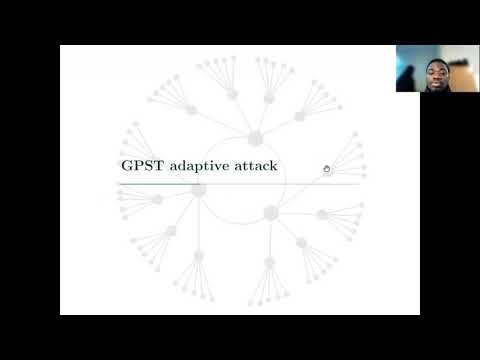CryptoDB
SHealS and HealS: isogeny-based PKEs from a key validation method for SIDH
| Authors: |
|
|---|---|
| Download: | |
| Conference: | ASIACRYPT 2021 |
| Abstract: | In 2016, Galbraith et al. presented an adaptive attack on the
SIDH key exchange protocol.
In SIKE, one applies a variant of the Fujisaki-Okamoto transform to force Bob to reveal his encryption key to Alice, which Alice then uses to re-encrypt Bob's ciphertext and verify its validity. Therefore, Bob can not reuse his encryption keys. There have been two other proposed countermeasures enabling static-static private keys: k-SIDH and its variant by Jao and Urbanik. These countermeasures are relatively expensive since they consist in running multiple parallel instances of SIDH.
In this paper,
firstly, we propose a new countermeasure to the GPST adaptive attack on SIDH. Our countermeasure does not require key disclosure as in SIKE, nor multiple parallel instances as in k-SIDH. We translate our countermeasure into a key validation method for SIDH-type schmes.
Secondly, we use our key validation to design HealSIDH,
an efficient SIDH-type static-static key interactive exchange protocol.
Thirdly, we derive a PKE scheme SHealS
using HealSIDH. SHealS uses larger primes compared to SIKE, has larger keys and ciphertexts, but only |
Video from ASIACRYPT 2021
BibTeX
@inproceedings{asiacrypt-2021-31465,
title={SHealS and HealS: isogeny-based PKEs from a key validation method for SIDH},
publisher={Springer-Verlag},
doi={10.1007/978-3-030-92068-5_10},
author={Tako Boris Fouotsa and Christophe Petit},
year=2021
}

